
Cartoon gay games
For most of gaming history, queer representation was either overt or discreet. Overt, like the leather daddy Ash from Sega's Streets of Rage 3, was often censored and obscured by dialogue changes, while discreet content would be hidden behind a series of context clues, requiring gamers to use digital gaydar to spot them.
A Night In The Woods
For a cartoon gay game that requires very little gaming skill, Night in the Woods is a surprisingly rich experience. Its cast of cartoon characters are colored in a no-frills style that looks like Samurai Jack, and their enormous eyes serve as visual shorthand to convey the personalities of a town full of close-knit acquaintances at a glance. The result is a gay cartoon game that feels deeply human, with an undercurrent of depressed queer millennial energy running through it.
The narrative goes to some pretty fucking places-existentialism, the nature of God, the terrible burden of being a human being-but it also gives weight to small scenes of friends enjoying each other, hurting each other, and reconciling. These moments lingered in my mind long after I had finished the cartoon gay game, thanks to earnest writing and a helping of dry humor.
The main character, Mae Borowski, is a 20-year-old college dropout who returns to her hometown of Possum Springs. There, she reunites with her old friends and struggles to come to terms with how both the town and they have changed since she left. The story is a coming-of-age tale on the surface, but it's also about navigating grief and finding meaning in a dying town. The supporting cast is largely made up of a group of queer characters, including Bombshell and Adina Astra, who are lesbian; Angus Delaney, Gregg Lee, and CJ and his unnamed husband are gay; and Mae is Pansexual.
Desta: The Memories Between
The latest release from ustwo games - makers of 2014's BAFTA-winning Monument Valley and 2021's peaceful camera-and-scrapbook game Alba: A Wildlife Adventure - Desta is a dreamy narrative-driven grid-based tactical roguelike about returning home. It tells the story of Desta, a nonbinary adult who returns to their small town in England to help their mother sell their family home. While they're there, Desta experiences a series of dreams in which they confront their anxieties about people who were important to them back home - including former love interests, out-of-touch friends, and their estranged relationship with their mother. These confrontations take place in a dreamscape version of their small town, and happen through dodgeball matches starring their friends and family members.
Desta is a beautiful and heartfelt cartoon gay game, with every character fully realised and richly detailed. From the moment you start the game, there's a sense of Desta's anxiety and regret for things they wish they'd said or done, and the way those feelings manifest in twisted manifestations of their relationships. The biggest strength though is the characters themselves. Everybody is a fully realised individual, with their own ambitions and problems, and the ways they interact with each other really rings true to real life relationships.
While the gay gameplay is solid, Desta struggles with the balance between its narrative and roguelike elements. It's not as tight or intuitive as Supergiant's 2020 hit Hades, and the repetition of dying, restarting, and replaying levels can get stale pretty quickly. But it's a good attempt at marrying progressive, thoughtful narrative with innovative tech and intuitive gay cartoon gameplay concepts.
Download links
![]() Stud Game
Stud Game![]() 3D Gay Game
3D Gay Game![]() LGBT gay games
LGBT gay games![]() Men Bang
Men Bang![]() Cockville
Cockville![]() FutaDomWorld
FutaDomWorld![]() 3D GayVilla 2
3D GayVilla 2![]() Fap CEO: Men Stream
Fap CEO: Men Stream![]() Gay Harem
Gay Harem![]() Gay Pornstar Harem
Gay Pornstar Harem![]() Trans Porn Harem
Trans Porn Harem![]() Run Kitty
Run Kitty
Games with gay cartoons & porn
Midnight Scenes: From The Woods
After his pixel art was used to great effect in Thimbleweed Park developer Octavi Navorro has continued to release 2D horror games with an anthology series, Midnight Scenes, being the standout. Channelling Twilight Zone creepiness these short stories with adventure elements are genuinely spooky and often quite disturbing. Featuring a range of genres the cartoon gay games are all fairly well-written and easy to get into with plenty of different player actions to engage with. These include dialogue choices, inventory-based puzzles and environmental exploration with each game being complete in less than an hour. The retro digital music also works well to add a sense of atmosphere and fits with the spooky content perfectly.
The latest episode in the series sees a young man being placed at Fernwood Creek Mental Health Center where some disturbing incidents begin to occur. The player takes on the role of Elijah who bonds with this new arrival despite the fact he cannot speak and hides a dark secret. The story focuses on themes of shared trauma, institutional healthcare and homophobia amongst others with some content players may find distressing.
It's the series' grimmest entry so far and marks a move away from the cheesiness that typified some of its earlier entries but it still delivers a compelling tale with intriguing narrative that is easy to invest in. It's a great entry in the series for those that love their cartoon gay horror and is an essential purchase for fans of this type of game.
Gay porn cartoon game
Dream Daddy
When Dream Daddy hit the gaming scene this summer, it was a surprise sensation. The dad dating simulator quickly overtook Overwatch as the most talked-about game on Tumblr and made Steam's top ten list in its first week. With "dadbod" entering the lexicon and the word "daddy" being used to refer to hot men everywhere, it's not surprising that a gay cartoon game that lets you romance fathers would be such a cultural hit.
Developed by YouTube channel Game Grumps co-hosts Leighton Gray and Vernon Shaw, the cartoon game gay is a surprisingly heartwarming cartoon gay game that has taken the internet by storm. But despite the game's success, it's a little more complex than you might expect.
At its core, Dream Daddy is a dating simulator, which means your objective is to go around and talk to potential suitors until one of them likes you enough to date you. That might mean saving the cartoon gay game before every question, reloading when you say something that doesn't work out, or just faking it until you get lucky.
But the game's story is about much more than just dating dads. It's about a girl called Amanda and her relationship with her father. And while the game has drawn criticism for its fetishistic depictions of queer masculinity and the idea that gay people should be romanced just for their bodies, it's also gotten a lot of praise for how well it treats its characters and the complexity of their relationships.




 Stud Game
Stud Game 3D Gay Game
3D Gay Game LGBT gay games
LGBT gay games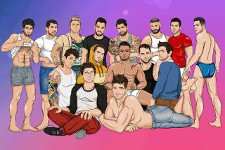 Men Bang
Men Bang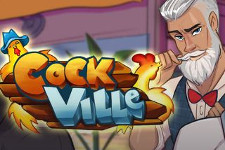 Cockville
Cockville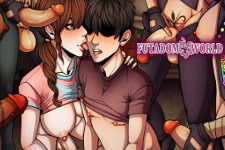 FutaDomWorld
FutaDomWorld 3D GayVilla 2
3D GayVilla 2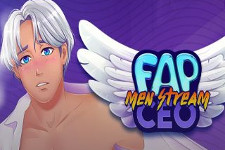 Fap CEO: Men Stream
Fap CEO: Men Stream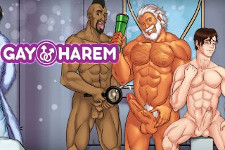 Gay Harem
Gay Harem Gay Pornstar Harem
Gay Pornstar Harem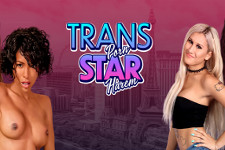 Trans Porn Harem
Trans Porn Harem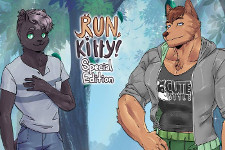 Run Kitty
Run Kitty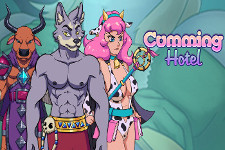 Cumming Hotel
Cumming Hotel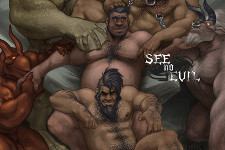 See no Evil
See no Evil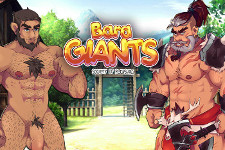 Bara Giants
Bara Giants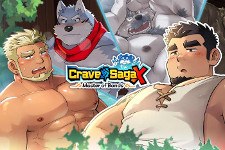 Crave Saga X
Crave Saga X ChatHouse 3D
ChatHouse 3D 3DXChat
3DXChat AChat
AChat 3D Gays
3D Gays Nutaku Gay
Nutaku Gay VR Gay Games
VR Gay Games Gay Game
Gay Game Gay Harem
Gay Harem Try not to cum
Try not to cum



